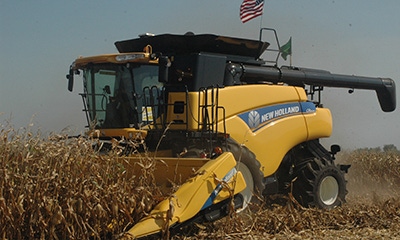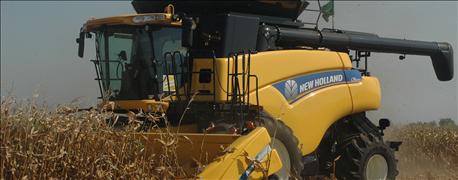
As President Barack Obama and U.S. Secretary of Agriculture Tom Vilsack wrapped up their historic visit to Cuba last week, Iowa’s farmers continue to closely follow these developments and stand poised to expand agricultural exports to the country and the rest of the region.

OPENING CUBAN MARKET: President Obama and U.S. Ag Secretary Tom Vilsack visited Cuba last week. Vilsack announced measures to open doors and foster U.S. trade with Cuba, hopefully selling the island nation more U.S. meat, grain and other ag products in the future.
It was Vilsack’s second visit to Cuba in five months. He announced USDA will allow the 22 industry-funded research and promotion programs and 18 marketing order organizations to conduct authorized research and information exchange activities with Cuba. Checkoff money could be used for this market development activity. Examples of projects could include consumer tracking studies to determine purchasing habits for a particular commodity, testing recipes or specific products among Cuban consumers, and studying school cafeteria waste to determine what kids eat.
Agricultural commodity groups praised Sec. Vilsack’s announcement, with the American Soybean Association calling the announcement “a big step forward” and the American Farm Bureau president Zippy Duvall saying it “represents a major boost.”
Iowa delegation went on a market development mission to Cuba
The Iowa Economic Development Authority led a delegation from Iowa on an exploratory mission to Cuba last month including Iowa Corn Growers Association chairman Jerry Mohr, a farmer from Eldridge in eastern Iowa. Mohr and Iowa representatives toured farms, agriculture facilities and other sites to learn about Cuba’s changing economy and market opportunities.
There is no embargo on U.S. food exports to Cuba. USDA recently reported sales of 984,200 bushels of U.S. corn to Cuba valued at $4.4 million so far this marketing year, highlighting the potential of the Cuban market for market developers such as the U.S. Grains Council (USGC). The Iowa Corn Promotion Board invests checkoff dollars in USGC and the U.S. Meat Export Federation for the export of corn and corn value-added products.
“Overall, the U.S. will be facing tough competition from Brazil and other exporting countries,” explains Mohr. “There is a potential for ethanol to be imported to supplement the country’s sugar cane production. They are desperately in short supply of quality meats and grocery products to feed their people. We will have the opportunity with our fine Iowa meat products to export meat and milk to Cuba when and if Congress votes to end the sanctions.”
Credit restrictions make it hard to sell U.S. products to Cuba
Mohr says one of the challenges for U.S. agriculture exports to Cuba remains the effective credit embargo requiring all transactions with U.S. suppliers to be in cash. “This has been a real problem. Also, the embargo impacts other agricultural exports that are excluded from trade with Cuba,” he stated.
Mohr noted several other observations regarding Cuba’s agricultural industry and its infrastructure:
* Millions of acres of farmland in Cuba have been out of production for many years; if the land becomes abandoned it will then revert to its native state.
* The principal crops produced include sugar cane, coffee, bananas and citrus. Rice, vegetables and tobacco also make up the country’s domestically produced crops.
* The meat business in Cuba continues to expand, but cannot support the country’s population nor the anticipated arrival of tourists. Food shortages of milk and milk products persist. A key staple in Cuban’s diets include chicken, goat, duck and pork products.
* Brazil recently built a huge port on the south side of the island to handle the increased shipping that is to be expected. However, the U.S. has a logistical advantage due to its proximity.
Summing up: Mohr says Cuba’s infrastructure poses the greatest challenge to that nation’s ability to catch up with the rest of the world. However, as an export market for U.S. products, Cuba holds great promise. For more information, visit iowacorn.org.
About the Author(s)
You May Also Like




